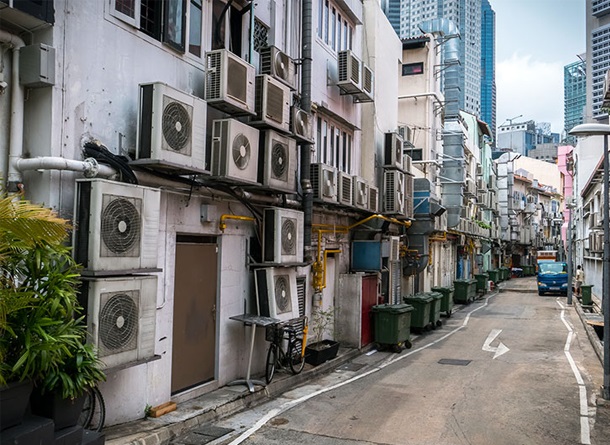APEC Fosters Climate Change-Fighting Buildings

The spiking environmental and economic costs of energy inefficient homes and offices, exacerbated by soaring temperatures and cooling needs, are prompting new action in APEC to break ground on next generation building development.
Buildings account for about a third of energy use and a fifth of energy-related carbon emissions globally. With 80 per cent of the APEC region’s 3 billion people forecast to live and work in cities in the next 30 years, the consequences of inefficient buildings will only grow in significance—raising energy costs for consumers and tripling building emissions by 2050.
“The Asia-Pacific is leading the way when it comes to building construction but energy efficiency standards are not keeping pace,” explained Dr Jyuung-Shiauu Chern, Lead Shepherd of the APEC Energy Working Group. “Overall, we’re most concerned about increasing demand for cooling linked to rising temperatures and rapid development in the region.”
“We are taking new steps in APEC to help our member economies optimize local building codes needed to phase in more energy efficient projects,” continued Dr Chern, who is also Chief of Energy Affairs at Chinese Taipei’s Energy Bureau. “Improving these codes will ultimately reduce energy costs for residents and businesses while tackling emissions to fight climate change.”
Energy consumption in buildings in developed economies is in many cases needlessly inefficient and wasteful due to continued use of outdated technologies and standards, according to APEC energy officials and sustainable building experts from the private sector who convened in Singapore to lay the groundwork for performance improvements. Adding to concerns is the fact that building projects in developing economies are largely following suit.
“There is a correlation between energy demand and economic growth, and increasing floor area and energy demand,” said Prof Peter Graham, Executive Director of the Global Buildings Performance Network and Deputy Director of the Centre for Urban Transitions at Swinburne University. “Significant changes within the building sector are urgently needed and require bridging knowledge gaps and aggressive policy measures.”
APEC is enabling public-private collaboration to assess building efficiency challenges and facilitate technical solutions to curb energy demand growth rates as quickly as possible. This includes identifying areas of agreement on energy efficiency and energy requirements in building codes, and supporting their deployment across the region.
“The building sector is very fragmented and the majority of construction activity is being conducted by small to medium enterprises,” noted Prof Graham. “Building codes can be innovation platforms to raise the minimum performance requirements of an industry that has very little time or capacity to innovate.”
“These businesses are mainly small companies that don’t have huge R&D or training budgets. They have to be on the job to make money,” Prof Graham added. “By adopting best practices in building code development, we can signal in advance where new performance requirements will be set. We are then able to educate and prepare them to meet higher efficiency standards,” he concluded.
Energy officials from APEC member economies will meet in Jakarta in August to take next steps to enhance commercial building energy performance and in Honolulu in September to boost nearly zero energy building development.
For more:
Video: Singapore Energy Market Authority CEO on APEC’s Energy Balancing Act
Feature: APEC on Target to Meet Sustainability Commitments
# # #
For further details, or to arrange possible media interviews, please contact:
David Hendrickson +65 9137 3886 at [email protected]
Michael Chapnick +65 9647 4847 at [email protected]
More on APEC meetings, events, projects and publications can be found on www.apec.org. You can also follow APEC on Twitter and join us on Facebook and LinkedIn.

